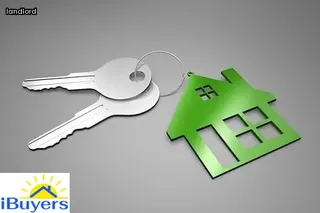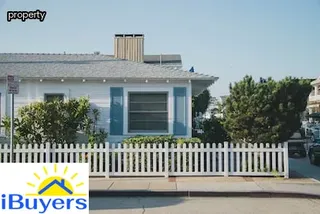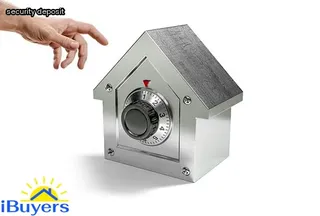In California, wear and tear is an important concept for landlords to understand when it comes to tenant damage to property. Wear and tear refers to the gradual, natural deterioration of a property due to regular use over time.
It is distinct from intentional damage or destruction caused by tenants and is not the landlord’s responsibility to repair or replace. Some examples of normal wear and tear include scuffed paint on walls, worn carpets, and loose door handles.
California law states that landlords must return security deposits minus any reasonable deductions for damages beyond ordinary wear and tear. Landlords should be sure to document all tenant damage prior to their move-out date in order to protect themselves if a dispute arises about damages charges later on.
Landlords should also take photos at move-in so they can easily compare the condition of the property at move-out with its original state. This will help ensure that tenants are only charged for damages that exceed normal wear and tear.

California landlords should be aware of their tenant's legal obligations to avoid damage to the property. Tenants are expected to take reasonable care of the property and to keep it in a clean and safe condition, as well as return it in the same condition that it was when they moved in.
Landlords may also require tenants to pay for any damages caused by intentional or negligent acts. This includes any damage from pets, people, or other sources.
The tenant is also responsible for any utility bills associated with the rental property such as gas, electricity, water, sewer, etc., and must follow all state laws regarding noise levels and waste disposal.
It is important for landlords to make sure that their tenants are aware of these obligations so that they can properly maintain their rental agreement and avoid costly repairs due to tenant damage down the line.
Security deposits are a common practice for California landlords when renting out their property to tenants. By requiring a security deposit at the start of the rental agreement, landlords can protect themselves from any potential damage to their property caused by the tenant.
Generally speaking, a security deposit is an amount of money that is collected from a tenant before they move into the rental unit and is held by the landlord until after the tenant moves out. The purpose of this deposit is to cover any unpaid rent or damages to the property that may have occurred during the tenancy.
The amount of money held in security deposits will vary depending on the landlord and state regulations, but typically ranges between one and two months' rent. If a tenant damages the property during their stay, then it is likely that all or some of this security deposit will be used to help pay for repairs or replacement costs.
It's important for California landlords to understand their rights when it comes to collecting and using security deposits so they can take steps to protect their property from potential damage caused by tenants.

California landlords should be aware of their rights when it comes to tenant damage to property. Security deposits are an important resource for landlords, as they can be used to cover any damages or repairs that may need to be made due to tenant occupancy.
As a result, it is important for California landlords to understand how they can get their security deposits back in the event of tenant damage. There are several steps landlords should take in order to protect themselves while also giving tenants a fair opportunity to dispute any deductions from the security deposit.
First, a landlord must clearly communicate all expectations regarding tenant damage in the lease agreement. This should include any fees associated with damages and/or repairs that will be taken out of the security deposit.
Additionally, landlords should conduct detailed move-in and move-out inspections with tenants present if possible. Having these inspections documented can provide proof of the condition of the property both before and after tenancy.
Finally, when making deductions from a security deposit, landlords must provide written documentation outlining exactly what was charged and why within 21 days of tenancy termination. Following these steps will ensure that California landlords have adequate protection against tenant damage while still providing tenants with an opportunity to dispute charges if necessary.
If a landlord refuses to return your security deposit, it may be necessary to take legal action. California landlords must know their rights when it comes to tenant damage and returning security deposits.
The law states that tenants are responsible for any damages that occur beyond normal wear and tear of the property while they are living there. The landlord should provide an itemized list of all damages to the unit along with an estimate of the cost of repairs before deducting from the security deposit.
If the landlord does not return the full amount of the security deposit, then the tenant may have grounds to file a lawsuit in small claims court. It is important for California landlords to understand that if a tenant believes their security deposit was wrongfully withheld, they can sue for up to twice the amount of their original deposit as well as court costs and attorney fees if applicable.
Additionally, landlords must comply with state laws by providing a detailed explanation within 21 days of why deductions were made from the security deposit in order to avoid any potential lawsuits from tenants.

California landlords should be aware of the landlord-tenant laws that are in place to protect both parties. It is important to have a thorough understanding of the rules and regulations so that property owners can make informed decisions when it comes to tenant damage to their property.
In California, the landlord is responsible for repairing any damage caused by tenants unless the damage is due to normal wear and tear or was caused by an outside force such as a natural disaster. Additionally, California law prohibits landlords from charging tenants for repairs that are more than two months old, or for the cost of replacement items if those costs exceed one-half of the original item's value.
Landlords should also be aware of their rights and obligations with regard to security deposits; they must return any remaining portion of the deposit within 21 days after tenancy has ended and provide a written statement of deductions if applicable. Before entering into a rental agreement, it is important that landlords understand all applicable laws in order to ensure a successful relationship with their tenants.
When it comes to tenant damage to property, California landlords should make sure their voice is heard. It's essential to document any evidence of tenant damage as soon as possible and provide proof in the form of photos or videos.
Landlords should also consider providing detailed descriptions of the damages and the amount they believe is appropriate to cover them. Additionally, they can take steps such as sending a formal letter or having a meeting with the tenant, if necessary.
In some cases, filing a lawsuit or initiating an eviction may be necessary if the landlord and tenant cannot come to an agreement. Finally, landlords should not hesitate to seek help from legal advisors if needed, as this can help safeguard their rights throughout the process and ensure that any disputes are handled fairly and efficiently.

When a tenant has caused damage to your property, it can be devastating and costly. California landlords should know their rights in this situation and understand the process for filing a claim for reimbursement.
It is important to document all damage thoroughly and make sure to provide proof of ownership of the damaged items. Additionally, you should discuss the incident with your tenant so they are aware of what happened and that you are seeking compensation.
In some cases, it may be necessary to take legal action against the tenant if they do not cooperate or pay restitution. It is also important to review your rental agreement as it may have language specifying how damages should be handled.
Finally, you should contact your insurance company as they may cover some damages depending on the type of policy you have purchased.
We believe that our representation sets us apart from other legal professionals in the area of California landlord-tenant law. Our experienced attorneys can provide comprehensive counsel to landlords concerning tenant damage to property, including reviewing lease agreements and providing advice on how to handle tenant disputes or repair costs.
We understand the complexities of this area of law, and we are dedicated to helping landlords protect their interests. Our attorneys are well versed in applicable statutes, codes, regulations, and case law, which allow us to take a proactive approach when helping clients navigate difficult situations involving property damage.
Additionally, our attorneys have a thorough understanding of the various remedies available for landlords who have suffered damages at the hands of tenants. Ultimately, our goal is to provide knowledgeable legal services so that landlords can confidently manage their properties and remain compliant with all relevant laws.
As a California landlord, it's important to understand tenant damage to property. When dealing with tenant damage and repairs, there are certain laws and regulations landlords must follow.
One of the most important questions that landlords have when it comes to tenant damage is what is the most they can charge for damages? In California, a landlord may not charge more than the actual cost of repairing the damages. This means that if the repair costs $100, the landlord cannot charge more than $100 plus any applicable taxes.
Furthermore, if a landlord believes that damages exceed $125 in value and wish to deduct from the tenant's security deposit, then they must provide an itemized list of all damages as well as copies of receipts for each item included in the estimate.

In California, a landlord can sue a tenant for property damage caused to the rental unit. Landlords should know that they are not only entitled to pursue legal action against tenants that have damaged their property, but they can also collect damages from them as well.
Under California law, landlords have the right to pursue reimbursement for any losses that have occurred due to tenant damage to their property. Landlords should understand that they may be able to file a civil lawsuit in order to recover any costs paid out of pocket due to repairs or replacements needed because of tenant damage.
It is important for landlords in California to understand the legal process and their rights when it comes to suing tenants for damages. A landlord must be able to prove negligence or recklessness on the part of the tenant in order for any claim for damages against them to be successful.
Tenants may also be held liable for any attorney fees incurred by a landlord during their pursuit of reimbursement. Before filing a lawsuit, landlords should seek out legal advice from an experienced real estate attorney who can help ensure that all claims are valid and will stand up in court.
In California, a landlord has a limited amount of time to bill a tenant for any damages caused to their property. According to the California Civil Code Section 1940.
2, landlords must provide written notice to tenants within 14 days of discovering the damage in order to be able to charge them for it. If they fail to do so, they can no longer seek reimbursement from the tenant.
This law applies even if the tenant is still occupying the rental unit at the time of discovery and regardless of whether or not the lease has been terminated. Furthermore, it is important for landlords to keep accurate records of any damage discovered in order to be able to prove that they provided written notice within 14 days of when it occurred.
California landlords should also make sure that any charges for damages are reasonable and proportional to the actual cost incurred by them as anything more than what was actually spent on repairs may be viewed as unjust enrichment and may result in legal action against them by their tenants.
Yes, a landlord in California can make a tenant pay for repairs to the property. Under California law, landlords have the right to hold tenants responsible for any damage they cause to the rental unit or its contents beyond normal wear and tear.
If a tenant causes damage to their rental property, the landlord must provide an itemized list of damages and repair costs to the tenant in writing and can charge them for these costs. Tenants should be aware that if they do not pay for any damages done, the landlord may be able to deduct the cost from their security deposit or sue them in small claims court.
Landlords should also remember that they are legally obligated to use any money from a security deposit only for unpaid rent or necessary repairs due to damage caused by the tenant.